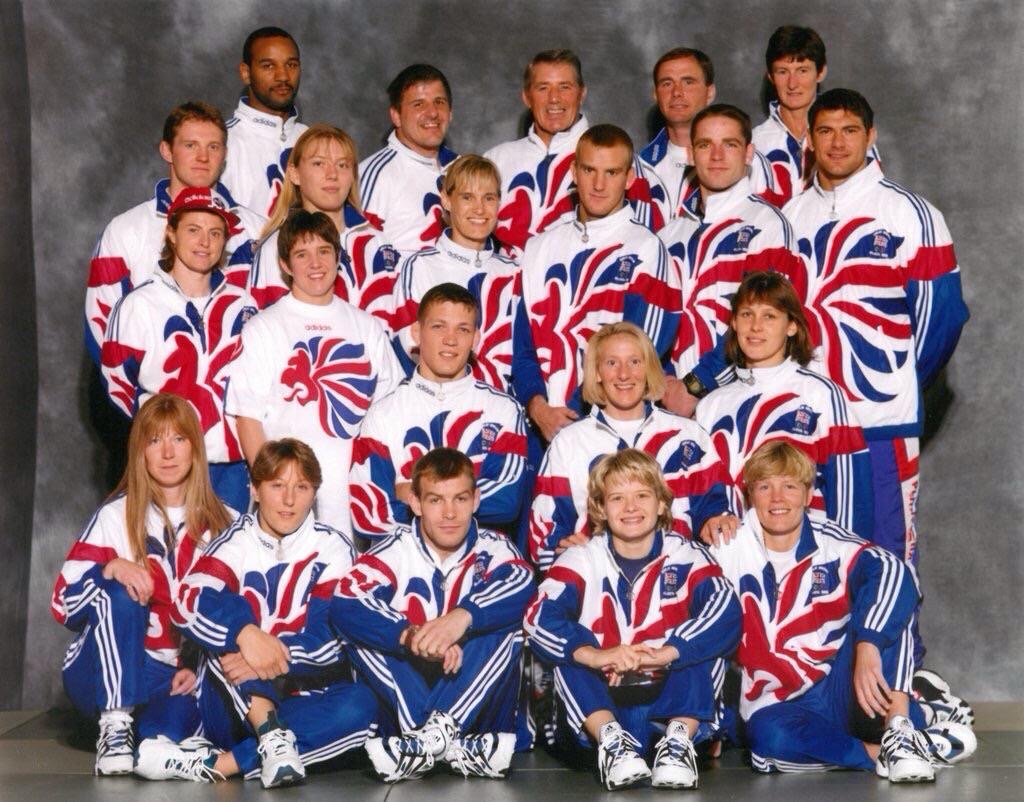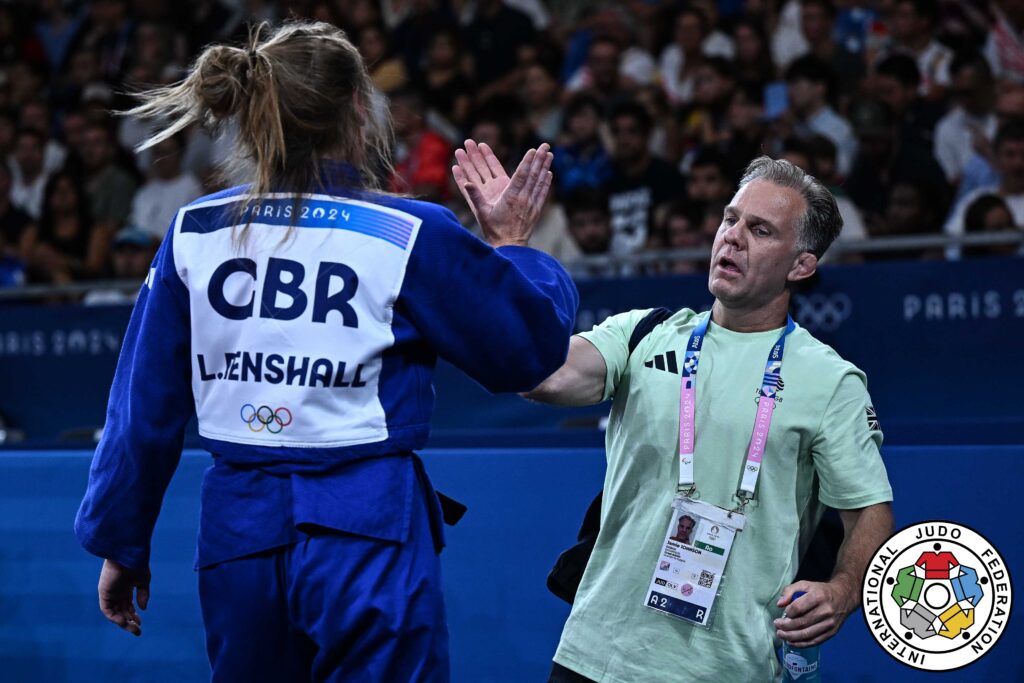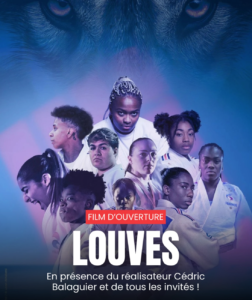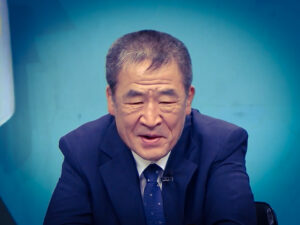Born on 20 December 1969 in Leigh (United Kingdom), Nigel Donohue was Performance Director of British Judo from 2013 to 2025. Our first meeting took place in Tel-Aviv in 2018, in the stands of the European Championships, after a week of reporting at the Wingate Institute near Netanya to understand the inner workings of the Israeli judo team. The introductions were made by Chris Barry, a mutual friend of Malin Wilson‘s. The aim was to understand – once again – the improvement, observed in British women’s judo results over several months at that time, especially in the not necessarily easy context of (re)building after the post-London Olympics momentum. The exchange with the 1995 European champion in the U60kg category, winner of the 1993 Paris tournament and seventh at the Atlanta Olympics, was a privileged moment. A mixture of intelligence, modesty and insight from one of those behind-the-scenes architects without whom the God Save the Queen (or the King, now) anthem would sound much less frequently. In fact, our exchanges have never really stopped since then, although they have been spaced out. The announcement of his departure, and the echoes of it in our post-Paris Olympics France, was an opportunity to sit down again with someone who is also the older brother of Jason Donohue, a former professional rugby player, and the father of Michael Donohue, a professional footballer currently with FC United of Manchester. – JudoAKD#035.
A French version of this interview is available here.
You left your position as Performance Director at British Judo on 14 March. Why now?
I have been working for British Judo for 16 years, 12 years as Performance Director and over 27 years in elite performance since I retired from competition in 1998. The demands and commitment required in elite performance is exceptional and you have to approach the positions not as a job, but as a way of life. Post Paris, I considered if I had the energy for another cycle with the intense demands the position entails and that as our National Training Centre is a 2-hour drive from my home. I spend 3 – 5 days per week either there or time away out of the country attending international competition, I was conscious that I have been an absent father and husband for a very long time and felt that I should now consider my family more, rather than the sport that has dominated my entire life.
You started after the London Olympics. Why you?
Post London 2012, UK Sport conducted an independent review of the British Judo Performance programme. There was a lack of confidence in judo going forwards with UK Sport setting 23 conditions on our Rio cycle funding and a number of programme and system conditions around centralisation and a greater focus on the next generation of athletes for future Games. I had been National Coach in Scotland for seven years and also worked as a Performance Analyst for UKSI in supporting the Beijing and London cycles. Additionally, I was the current England Head Coach working with a very professional team and we had developed a strong England programme with a number of young athletes coming through the performance system. I had a lot of experience and expertise in performance judo and I am also very strong in strategy and planning. Plus, I was a high performer throughout my career, so had a lot of knowledge and credibility to take on the position, though I must say, I was not initially ready for the demands of the role and the breadth of expertise and skills required to be a Performance Director at that time.

On both occasions (2013 and 2025), you started and left in March, whereas in many countries, after an Olympic cycle, the new staff is appointed in September or October. Why is this transition period important for you?
The reason why I started in March 2013 was due to the time it took to conduct and conclude the London 2012 post Games review. Following the Paris 2024 Olympic and Paralympic Games we conducted an in-depth cycle review which takes a number of months to work through. Additionally, we also had to finalise any work required around our UK Sport LA submission, with investment being confirmed in December for the LA cycle. Positively, we have received an increased level of investment of £8,075,000 for the LA 2028 Games, an increase of £1.2 million compared to the Paris cycle. Following the confirmed investment, we had to work to finalising a contracted budget and also a staffing structure review. This process started in January of this year, and it was decided that this would be the time for me to step down as we enter into the new funding cycle on the 1 Apr 2025.
What were the challenges you faced when you started in 2013? It’s interesting from a French point of view because the new staff here faces exactly the same challenges at the moment, I mean managing a team right after hosting the Olympic Games.
There were a number of challenges to fix before taking on the position in 2013. Firstly, we had to move to a centralized programme, but before we could do that, we needed a National Training Centre to be based in. A tender process was put in place for organisations to tender to be our host with a specific specification. We reviewed a number of facilities and the University of Wolverhampton, Walsall Campus was the outstanding bid. Before we could move in, there was several months of refurbishment required to have the facility ready for a full time training programme. From there, we had to build a fully centralized system from scratch, identify athletes for the programme and recruit coaches, sports science and medicine staff, and transition everyone into the National Training Centre.
Additionally, it was clear that judo, as a sport, had no credibility in the UK sporting system, so it was critical to build relationships with our key stakeholders and slowly but surely, build confidence in the British Judo performance system both on and off the mat. I remember that this was a very demanding time for me with the workload, stress, commitment and learnings being astronomical in the first four years of the role.
What are you most proud of after these three Olympic cycles?
I am proud of many things both on and off the mat and possibly too many to mention but will highlight a number of memories. Firstly, we are one of very few sports and programmes in the UK and possibly World Judo who has a fully integrated Olympic and Paralympic programme. I think that is very special. I have seen our programme grow over the years and go from strength to strength. We have won medals at every level in both programmes, but highlight Chelsie Giles winning Bronze at the Tokyo Olympic Games who had COVID just 5 days before travelling out to Tokyo. Chris Skelley is one incredible athlete and person and seeing him win gold in the Tokyo Paralympic Games was incredible and he followed that up with a bronze in Paris. The Paris cycle in particular was very pleasing as we had two European Champions, two World medallists and two World number one’s – our best performances over a cycle for some twenty years, but just didn’t quite get the performances in Paris that we were capable of in the Olympic Games, but our Paralympic Team won two medals and that made Paris a very positive cycle.
What about off the mat?
Off the mat, I am immensely proud that we have raised the profile, confidence, respect and credibility of British Judo in the UK Sporting System. There is a great belief in our performance programme and that is reflected in our LA investment. We also contribute our learnings, experiences and expertise across the wider system, that is important, as this gives our sport a future for continued support.
Finally, I am proud that I got to work with a brilliant Team – coaches, sports science and medicine staff, our Leadership team and our stakeholders. Every day was a pleasure to go to work, because I had a brilliant team to work with.
Do you have any regrets, despite everything?
You always have regrets as you always reflect on what you have achieved and want you could have done better. I am my own hardest critic. Critically for me is that we have not yet got our men performing at the same level as our women’s programme, but I have great belief in our men for the LA cycle. They have great potential, and with Paris just being a 3-year cycle, the Paris Games where just too soon for them, but watch out for LA and Brisbane.

You have worked at junior, senior, Olympic and Paralympic level. What does a performance director need most to achieve results: skills? Time? Confidence? Budget? Communication? Health? What are the key points of Nigel’s management?
As a Performance Director you need to have many skills – more than I ever thought and you never stop learning! It is critical that you have vision and are able to strategically plan for both the immediate Games cycle and, at the same time, the next Games cycle, you have to be a data analyst and have expert knowledge of the performance system both domestically and internationally. Additionally, you need to be able to lead a team, set high standards, lead by example and have knowledge across all the various disciplines across the programme in order to drive an integrated multi-disciplinary team. You have to have the ability to build relationships with your stakeholders to gain their confidence and respect.
Having the skills to write investment submissions is critical and being able to manage investment budgets over a year and quadrennial is non-negotiable. The programme is incredibly complex – junior, senior, men, women, olympic, paralympic – and having the ability to understand, analyse, manage and have clarity of where each programme is at any one time, takes a lot of knowledge and expertise. The commitment to being a Performance Director is 24/7 and it can also be a very lonely position.
How far?
There is a huge mental stress on you personally as everyone thinks you always have the answers, and you don’t, everyone thinks you make all the decisions by yourself and you don’t, as you work within an interdisciplinary Leadership Team, everyone brings to you their problems and blames you personally if they don’t get what they want and everyone blames you if we don’t get any success. You have to stay focused, believe in your evidenced based strategy and systems and processes, stay professional and back and believe in your team.
We have talked together a couple of months ago about the long-term development of athletes. Do you think that the judo world should be more aware of these aspects? And what about Long Term… Coaches Development? I guess you had your own ideas in the beginning, but you also learned from mistakes. It might be interesting to mention these steps and turning points.
Over the last three cycles, we have seen the IJF World Tour go from strength to strength with the number of events across the world and the quality of the events in terms of delivery, visual presentation, organisation, technology, Judobase, IJF Live, Telegram, communication, etc. We really have a world class production of judo led by our International federation.
However, the calendar is now becoming congested. Athletes travel the world competing for IJF points, necessary for seeding, ranking, Olympic qualification etc., but the calendar is just a calendar and I believe needs to be constructed as an annual and quadrennial periodized competition programme with a competition season and an off-season, to support athletes in being able to recover from competition/weight management/travel/injury and also, just as important, for the coaches and support teams to have some time to recover/reflect/review and rest.
Interesting point.
The demand on the coaches is exceptional. They travel with the athletes, work very long hours over the period of a competition and then have to plan, coach, and attend training camps in-between competitions. The demand on coaches is greater than it is on athletes who spend a significant amount of time away from their home, from their families. It is not sustainable for coaches to do the job over a number of cycles and it is not conducive to their mental health and well-being.
I guess you’ve also learned from other coaches, other sports or other aspects of life…
If we considered how we could periodized the annual competition calendar and align that across the pathway with Junior and Cadet levels, I believe we will develop better athletes in judo for the benefit of the sport as a whole and take better care of our coaches and support staff.

For example, judokas like Chelsie Giles and Lucy Renshall had their best results right after the lockdown. How did you manage to turn this difficult moment into something positive for your athletes?
COVID was difficult for everyone and sadly, people lost family members during this world pandemic. As a programme, I think we managed this period exceptionally well. We made an early decision, based on information from the UK Performance System and UK government, to close the National Training Centre so that athletes and staff could return home. We managed to get training kit sent to their homes ahead of the UK going into lockdown four days later. Like everyone, we had to work on what information we were receiving from our government, as the world paused for a period of time. Given the demands of the judo programme, we turned lockdown into a ‘positive’, got creative and used this period as a regeneration period where athletes could get in some quality active recovery work. Obviously, we did not know how long this period would last for.
And it lasted, indeed…
As the weeks and months went by, we phased the athletes back into training under the restrictions of the government guidelines, but saw the athletes come back with excellent fitness levels and rejuvenated, considering the circumstances that we had all experienced. I think the reduced training load for the lockdown period and a phased return to training helped the athletes come back in a better position ahead of the final Tokyo Olympic qualification period where they achieved some incredible performances.
Your women team had great results during that time (also Sally Conway, Nekoda Smythe-Davis, Gemma Howell, Natalie Powell…). How do you explain that they were more successful than the men at the same time?
The men where not quite ready for Tokyo, the women where already established at world level and returned back to competition performing at a very high level. The men needed more competition time, mainly at lower level events, but had limited opportunities to compete leading up to the end of qualification as there was a limited number of events that were mainly at Grand Prix and Grand Slam level.
Technically, most of them are still very efficient in ne waza. Is it because they work it more or, as Travis Stevens once said, because most athletes don’t work it seriously?
Great Britain was once world renowned for our ne waza and I grew up admiring Neil Adams, Kerrith Brown and Steve Gawthorpe who were world class ne waza athletes. Somewhere over the last twenty years we have lost our way in ne waza, but Jamie Johnson, who trained under Neil Adams, is an exceptionally high-level coach and is, in particular, very strong in coaching ne waza. He has worked with the women athletes over the last 12 years or so and ne waza has been a major focus in developing the athletes to compete with the best in the world. He has been instrumental in developing our athletes to be world renowned in ne waza.

On the 14th of May it will be thirty years since you’ve been European Champion. Judo has changed a lot since then. In which aspects has it changed for the better? And for the worst?
Well obviously, the technical rules have changed a lot since my day, especially with the taking away of leg grabs. The contest times have also been reduced from 5mins down to 4mins and Golden Score has been introduced.
Sport has evolved over time, and I think judo has improved in many ways. I like the World Ranking List and the IJF World Tour – we just need a competition season and an off-season. The presentation of the events is exceptional, and I like the technology that supports competitions, and how you can access information so easily – Judobase, JudoData, IJF Live for example.
However, over the last cycle, the rule changes have created a more negative style of judo with penalties dominating contests. The new rules introduced for the LA cycle will hopefully improve and reward the more offensive and attacking judoka. But time will tell.
Looking on JudoInside, your last official fight was against Jamie Johnson in 1997. It’s interesting to see that years later you worked together in the national team. The same thing happened recently with the French national team, when Christophe Gagliano, Christophe Massina and Daniel Fernandes, who were rivals during their careers, trained together. Does it bring a different sparkle, a different flavor or perhaps a real trust when we talk about leading together a group to performance?
Yes, both Jamie and I where rivals during our competition days and when we retired, we had separate pathways in coaching but came together around 2008 when we both coached in our England programme and just got on so well. In many ways, we are opposites, but in other ways, we are very much aligned and fully connected. The relationship works so well, and we just complement each other. I have seen Jamie over the years grow to, in my opinion, be one of the best coaches in World Judo. He is technically very good and works extremely hard to support the athletes on the programme. He will always give the athletes his time, which is the greatest commodity we all have and the success that he has achieved, speaks for itself. He is a bundle of energy and brings a brilliant dynamic to the environment. Any athlete working with Jamie will always greatly improve their performance judo.
You retired from competition at the age of 27 and now you are twice as old. Is the taste the same when you pull out?
Judo has been my life since I was 9 years old and is very much in my blood. Obviously, as time goes by, how you engage in judo changes, but in essence, my enjoyment in judo remains the same, just in a different way as I am twice as old!

Kate Howey, former world champion and double Olympic medalist, succeeds you on an interim basis as Performance Director. What challenges will she have to face on the road to LA and beyond?
The British Judo World Class Performance Programme (WCPP) is in a very good place. We have built a solid foundation for the programme over the last 12 years, have an established performance system in place, a clear strategy for LA and Brisbane, increased investment from UK Sport and great credibility in the UK sporting system. We have had a lot of success over the years, giving us confidence in that we know how to develop, qualify and prepare athletes for an Olympic and Paralympic Games and we have athletes in the system who have great potential to do well in LA and Brisbane. We also have a brilliant team of staff in place to support the incoming Performance Director.
For the next Performance Director, they will take the reigns of a programme that is in a very good position with the opportunity to take it to the next level. The challenges will be to initially grasp all the of components required in leading a world class programme, the demands of the role and being the leader of the team in having the responsibility of being the figure head of our sport for our membership and representing judo across all of our Olympic and Paralympic programmes.
You mentioned that you want to dedicate more time with your family now. It’s a really hard equation for many coaches to deal with because of the commitment that high level judo demands. What could be a fairer and more balanced system to give people who are as committed as you are the opportunity to spend more time with their families?
To be successful in elite sport, you have to fully commit whether it be as an athlete, coach, practitioner or in a leadership position. Your time is your greatest asset and, as a coach, if you want to be successful, you will give a greater proportion of your time to your coaching than you will do to your family. The demands in elite coaching is exceptional. As I stated earlier, I think the periodization and the planning of an annual competition programme could be constructed better with a competition season and off-season phasing to help support coaches having a better work life balance.
What is the next chapter for you?
I am taking time out to spend with my family, but I am looking forward to the next challenge. I have spent a lifetime in performance judo both as an athlete and as an elite coach and Performance Director. I have attended two Olympic Games as an athlete, four Olympic Games and three Paralympic Games, plus competed in a Commonwealth Games and led a Team at the Commonwealth Games. I cannot count how many European and World Championships that I have attended or the number of international competitions and training camps I have travelled too over the last 40 years or so, giving me experiences and learnings that you can only dream of.
In the roles that I have done in judo, I have accumulated an incredible amount of knowledge and developed a depth of expertise in elite performance sport at the coal face, where at this stage in my career, I would like to experience working in other Olympic, Paralympic or Professional sports. I know that I have a lot to offer and at the same time, I still have a lot to learn.
The message has been received. You started judo at the age of nine. If the Nigel of today could give one piece of advice to the boy he was when he earned his first white belt, what would it be?
My advice would be to enjoy the journey. To celebrate the successes more than I did it on the moment. To remember that the experiences and learning that judo provides will give you the skills you need to become whatever you want to be in life. – Interview by Anthony Diao, spring 2025. Opening picture: ©Facebook British Judo/JudoAKD.
A French version of this interview is available here.
Bonus – The 2024 Olympics episode of the U70kg vlog by Jemima Yeats-Brown, a member of the British women’s judo team during the Nigel Donohue years, who regularly chronicles the daily life of a top athlete on her YouTube channel:
More articles in English:
-
- JudoAKD#001 – Loïc Pietri – Pardon His French
- JudoAKD#002 – Emmanuelle Payet – This Island Within Herself
- JudoAKD#003 – Laure-Cathy Valente – Lyon, Third Generation
- JudoAKD#004 – Back to Celje
- JudoAKD#005 – Kevin Cao – Where Silences Have the Floor
- JudoAKD#006 – Frédéric Lecanu – Voice on Way
- JudoAKD#008 – Annett Böhm – Life is Lives
- JudoAKD#009 – Abderahmane Diao – Infinity of Destinies
- JudoAKD#010 – Paco Lozano – Eye of the Fighters
- JudoAKD#011 – Hans Van Essen – Mister JudoInside
- JudoAKD#021 – Benjamin Axus – Still Standing
- JudoAKD#022 – Romain Valadier-Picard – The Fire Next Time
- JudoAKD#023 – Andreea Chitu – She Remembers
- JudoAKD#024 – Malin Wilson – Come. See. Conquer.
- JudoAKD#025 – Antoine Valois-Fortier – The Constant Gardener
- JudoAKD#026 – Amandine Buchard – Status and Liberty
- JudoAKD#027 – Norbert Littkopf (1944-2024), by Annett Boehm
- JudoAKD#028 – Raffaele Toniolo – Bardonecchia, with Family
- JudoAKD#029 – Riner, Krpalek, Tasoev – More than Three Men
- JudoAKD#030 – Christa Deguchi and Kyle Reyes – A Thin Red and White Line
- JudoAKD#031 – Jimmy Pedro – United State of Mind
- JudoAKD#032 – Christophe Massina – Twenty Years Later
- JudoAKD#033 – Teddy Riner/Valentin Houinato – Two Dojos, Two Moods
- JudoAKD#034 – Anne-Fatoumata M’Baïro – Of Time and a Lifetime
- JudoAKD#036 – Ahcène Goudjil – In the Beginning was Teaching
- JudoAKD#037 – Toma Nikiforov – The Kalashnikiforov Years
- JudoAKD#038 – Catherine Beauchemin-Pinard – The Rank of Big Sister
- JudoAKD#039 – Vitalie Gligor – « The Road Takes the One Who Walks »
- JudoAKD#040 – Joan-Benjamin Gaba and Inal Tasoev – Mindset Matters
- JudoAKD#041 – Pierre Neyra – About a Corner of France and Judo as It Is Taught There
- JudoAKD#042 – Theódoros Tselídis – Between Greater Caucasus and Aegean Sea
- JudoAKD#043 – Kim Polling – This Girl Was on Fire
- JudoAKD#044 – Kevin Cao (II) – In the Footsteps of Adrien Thevenet
- JudoAKD#045 – Nigel Donohue (II) – About the Hajime-Matte Model
- JudoAKD#046 – A History of Violence(s)
- JudoAKD#047 – Jigoro Kano Couldn’t Have Said It Better
- JudoAKD#048 – Lee Chang-soo/Chang Su Li (1967-2026), by Oon Yeoh
Also in English:
- JudoAKDReplay#001 – Pawel Nastula – The Leftover (2017)
- JudoAKDReplay#002 – Gévrise Emane – Turn Lead into Bronze (2020)
- JudoAKDReplay#003 – Lukas Krpalek – The Best Years of a Life (2019)
- JudoAKDReplay#004 – How Did Ezio Become Gamba? (2015)
- JudoAKDReplay#005 – What’s up… Dimitri Dragin? (2016)
- JudoAKDReplay#006 – Travis Stevens – « People forget about medals, only fighters remain » (2016)
- JudoAKDReplay#007 – Sit and Talk with Tina Trstenjak and Clarisse Agbégnénou (2017)
- JudoAKDReplay#008 – A Summer with Marti Malloy (2014)
- JudoAKDReplay#009 – Hasta Luego María Celia Laborde (2015)
- JudoAKDReplay#010 – What’s Up… Dex Elmont? (2017)
And also:
- JudoAKDRoadToLA2028#01 – Episode 1/13 – Summer 2025
- JudoAKDRoadToLA2028#02 – Episode 2/13 – Autumn 2025
JudoAKD – Instagram – X (Twitter).



